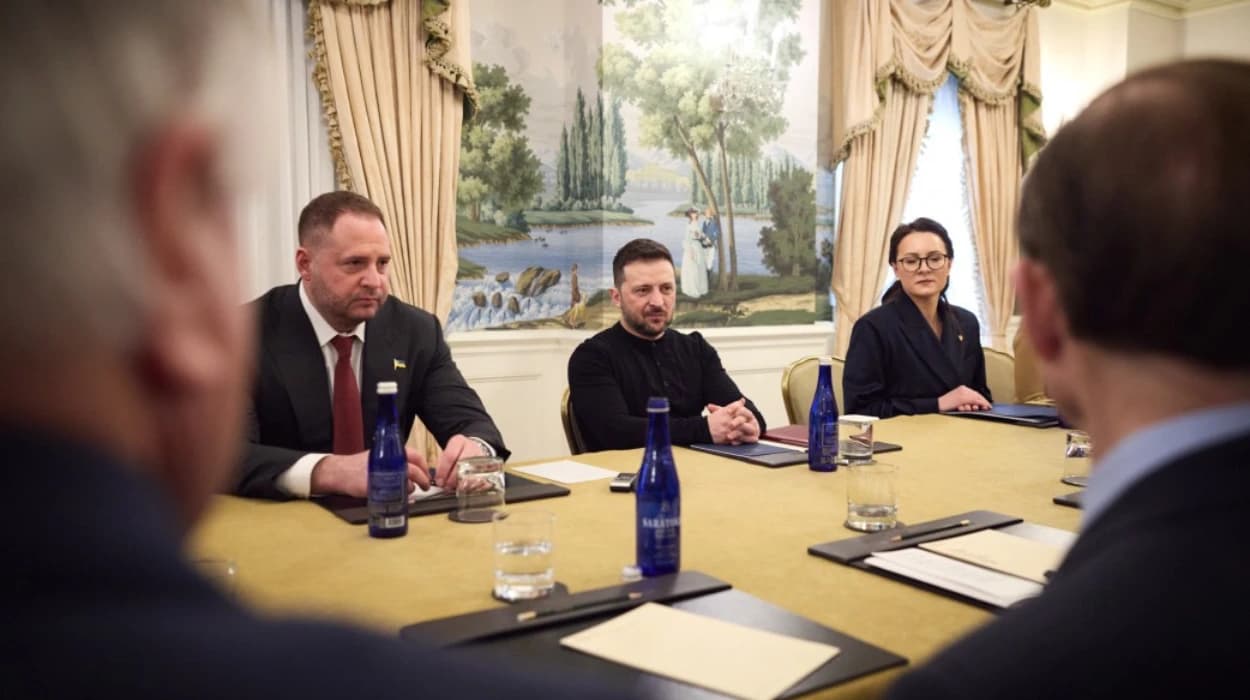In recent years, the strategic meetings between Ukrainian President Volodymyr Zelenskyy and U.S. senators have become pivotal for Ukraine's ongoing conflict with Russia and its quest for support on the global stage. These encounters serve to solidify bipartisan American support, discuss legislative actions regarding sanctions on Russia, and deliberate on military and humanitarian assistance.
Background: The Context of U.S.-Ukraine Relations
Since Russia’s full-scale invasion of Ukraine, the U.S. has emerged as one of Ukraine’s most steadfast allies, providing extensive military, financial, and humanitarian aid. The U.S. Congress plays a critical role in shaping America’s policy toward Ukraine, balancing bipartisan imperatives to support Ukraine’s sovereignty with domestic political considerations.
Ukrainian President Zelenskyy’s visits to the U.S. and meetings with senators are vital for maintaining momentum in aid packages and sanctions regimes. These meetings typically aim to update U.S. lawmakers on the battlefield situation, advocate for enhanced support, and reinforce the urgency of peace negotiations and sanctions pressure on Moscow.
Overview of Recent Zelenskyy and U.S. Senators Meetings
Bipartisan Engagement in Support of Ukraine
In May 2025, President Zelenskyy met with a bipartisan pair of U.S. senators, Lindsey Graham (Republican, South Carolina) and Richard Blumenthal (Democrat, Connecticut), in Kyiv. The senators strongly urged for intensified sanctions against Russia amidst Russia’s largest aerial assault on Ukraine since the conflict began. Discussions focused on legislative action to impose harsher tariffs on Russian imports and building sustainable pressure on Moscow to halt its aggression.
Earlier in 2024, Zelenskyy met with a bipartisan U.S. Senate delegation in Washington, D.C., including Senate Majority Leader Chuck Schumer and Minority Leader Mitch McConnell. This engagement underscored the cross-party commitment to Ukraine’s defense, with leaders deliberating on joint strategies, bilateral security agreements, and support for Ukraine’s sovereignty.
Legislative Initiatives and Sanctions Against Russia
One prominent legislative effort co-sponsored by Senators Graham and Blumenthal proposed a bill to impose a 500% tariff on goods imported from countries purchasing Russian oil, gas, and minerals. Supported by a bipartisan majority, the bill underscored Congress’s determination to escalate economic pressure on Russia to compel its withdrawal from Ukraine.
Despite this legislative momentum, former President Donald Trump exhibited ambivalence regarding the imposition of new sanctions. His stance reflected broader debates on balancing diplomatic engagement with Russia against punitive measures.
Zelenskyy’s Advocacy for Military Aid and Peace Negotiations
Beyond sanctions, Zelenskyy’s meetings often highlight the need for expanded military assistance, especially advanced long-range weaponry capable of targeting strategic locations inside Russia. This is part of Ukraine’s broader strategy to counterbalance Russian military capabilities and strengthen its defense posture.
Zelenskyy has also pushed for progress in peace negotiations, advocating for meaningful dialogue with Russia under international mediation, and has suggested potential multilateral talks involving the United States, Russia, Turkey, and Ukraine to facilitate a durable resolution.
Challenges and Uncertainty Over Peace Talks
Despite high-level engagement, skepticism surrounds prospective peace negotiations. Ukraine has voiced concerns over Russia’s failure to submit negotiation proposals ahead of scheduled talks. Zelenskyy and Turkish President Erdogan have emphasized the necessity of clear agendas and genuine preparation for discussions to be productive.
The geopolitical dynamic remains volatile, with ongoing Russian missile attacks and political posturing complicating diplomatic efforts. The largest prisoner exchange since the conflict’s start occurred alongside escalations in conflict, underscoring the fragility of ceasefires and the deep entrenchment of hostilities.
Impact of Zelenskyy-US Senators Meetings
Strengthening Bipartisan Support
Zelenskyy’s direct engagements with U.S. senators facilitate crucial bipartisan consensus, ensuring stable and sustained American support that transcends political divisions. This bipartisan backing influences the passage and implementation of aid legislation, sanctions, and diplomatic initiatives.
Shaping U.S. Policy and Public Opinion
Meetings with senators help shape U.S. policy by providing lawmakers firsthand insights into the realities on the ground in Ukraine, leading to increased backing for aid and sanctions. Additionally, high-profile visits garner media attention, shaping public opinion in favor of supporting Ukraine’s sovereignty and democracy.
Bolstering Ukraine’s Diplomatic Standing
Zelenskyy’s interactions with U.S. senators cement the partnership between the two countries and elevate Ukraine’s diplomatic profile globally. This support provides Ukraine with leverage in international forums and negotiations, emphasizing the crucial role of U.S. leadership in resolving the conflict.
Zelenskyy’s meetings with U.S. senators have been instrumental in securing bipartisan American support amid Ukraine’s ongoing conflict with Russia. Through these high-level discussions, bipartisan legislation imposing tougher sanctions on Russia has gained traction, additional military aid has been advocated, and diplomatic dialogues have been reinforced. Although peace negotiations remain uncertain and complicated by continued hostilities, Zelenskyy’s persistent engagement with the U.S. Senate underlines the strategic partnership between Kyiv and Washington. This partnership plays a vital role in shaping international policies aimed at ending the conflict and supporting Ukraine’s sovereignty.

